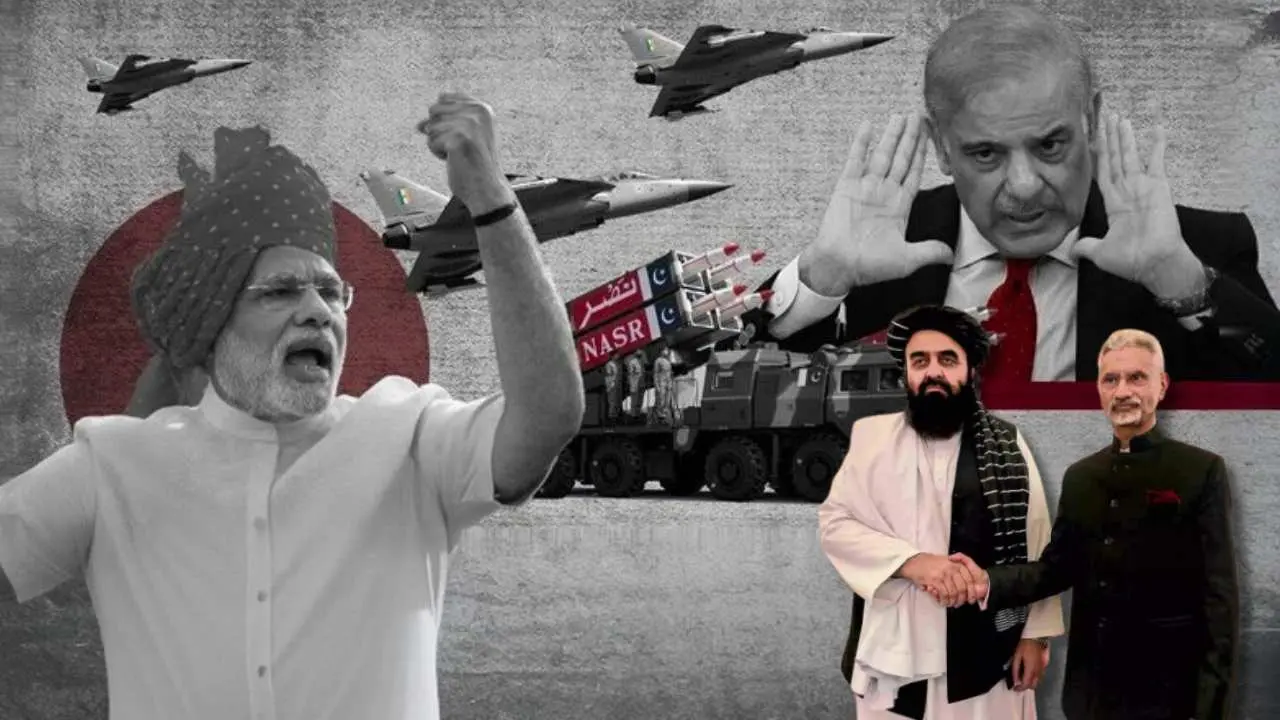Regional experts say Pakistan Taliban tensions are reaching a new high as both nations trade accusations of supporting terrorism and foreign influence.
Pakistan Blames Afghanistan for India’s ‘Proxy War’
The diplomatic rift between Pakistan and Afghanistan has deepened after Pakistan’s Defence Minister accused Kabul of waging India’s “proxy war.” The remarks come just months after India’s Operation Sindoor, which reinforced New Delhi’s growing regional influence.
Islamabad Points Fingers at Kabul Over Militant Havens
The accusation marks a sharp escalation in the uneasy relationship between Islamabad and the Taliban-led Afghan government. Pakistan claims that India is using Afghanistan to destabilize its western borders and fuel militancy through covert networks. Officials in Islamabad have also accused the Afghan authorities of sheltering members of the Tehrik-e-Taliban Pakistan (TTP), a banned militant outfit responsible for numerous attacks inside Pakistan.
Afghanistan Retaliates with ISKP Allegations
In response, Afghanistan has strongly rejected the allegations and countered that Pakistan continues to support the Islamic State Khorasan Province (ISKP) — the local branch of the Islamic State group — which has carried out a series of deadly attacks in Afghan territory. Taliban officials have alleged that elements within Pakistan’s intelligence services are backing ISKP to undermine the Afghan government and spread instability in the region.
Border Skirmishes Deepen the Divide
Recent border skirmishes and reports of Taliban forces humiliating Pakistani troops have further strained bilateral ties. The developments underscore a dramatic reversal in Pakistan’s long-standing influence over Afghanistan — a relationship shaped by decades of political patronage and intelligence involvement. Analysts say Islamabad’s leverage over the Taliban appears to be diminishing as the group asserts independence in both foreign and security policies.
Regional Power Shift After Operation Sindoor
Observers believe the tensions are part of a larger regional contest. India’s assertive posture following Operation Sindoor and its strategic outreach in Afghanistan have reshaped South Asia’s power dynamics. Experts suggest that Pakistan’s accusations against Kabul may be an attempt to deflect attention from its own domestic instability and growing international isolation.
Rising Instability Along the Afghanistan-Pakistan Border
As the blame game continues, the Afghanistan-Pakistan border remains a flashpoint, raising fears of further cross-border violence. Regional analysts warn that the escalating hostility could threaten fragile peace efforts and draw in neighboring powers once again.
Political observers believe the growing Pakistan Taliban tensions are reshaping South Asia’s strategic map. Islamabad, once seen as the key influencer in Afghan affairs, now finds itself facing an emboldened Taliban leadership unwilling to take orders. Meanwhile, India’s diplomatic advances and security posture after Operation Sindoor have intensified Pakistan’s sense of regional isolation. Experts warn that continued mistrust could lead to more border escalations and weaken counterterrorism cooperation. Analysts warn that if Pakistan Taliban tensions continue to rise, the fallout could destabilize South Asia’s fragile security balance.









